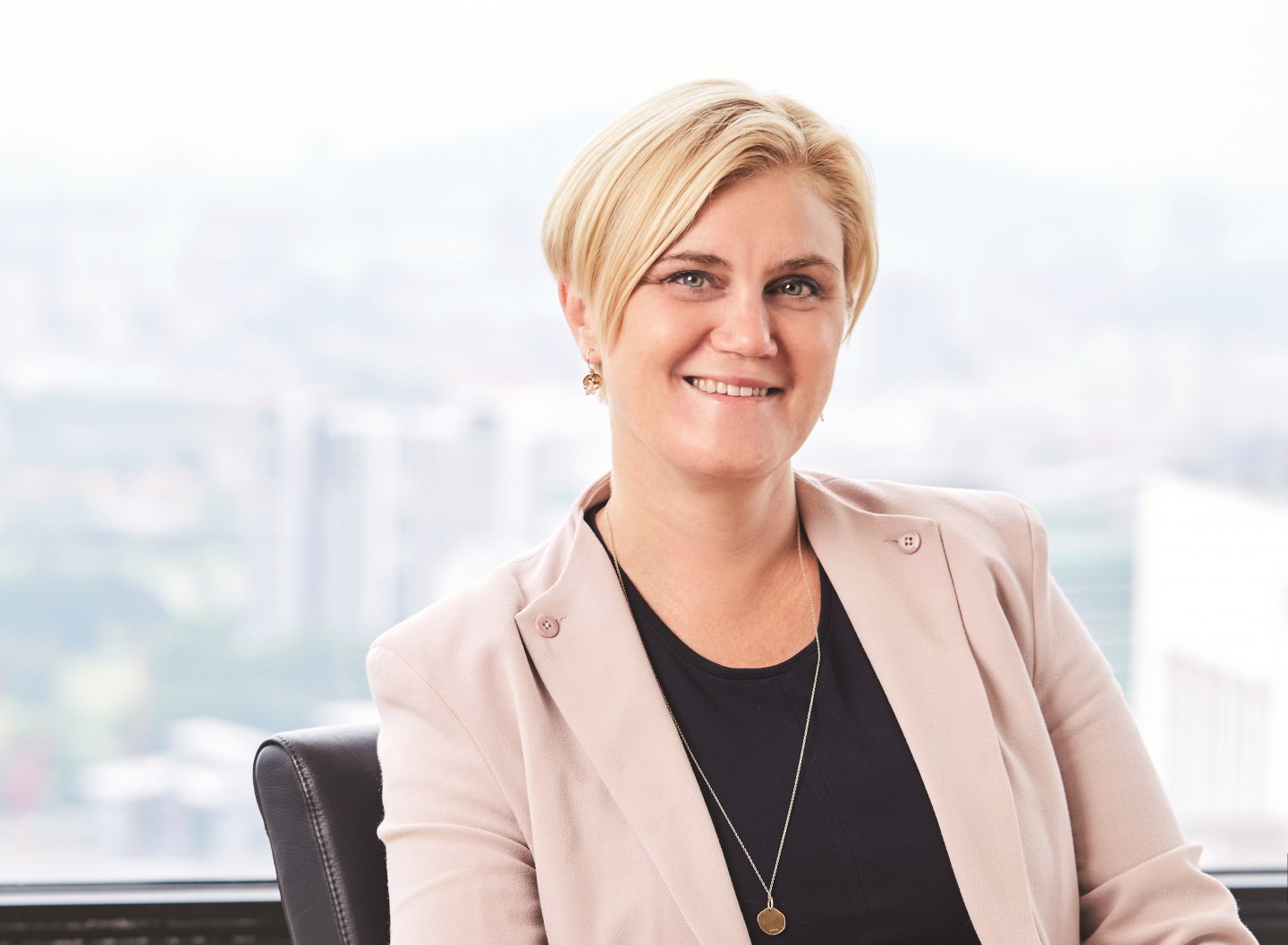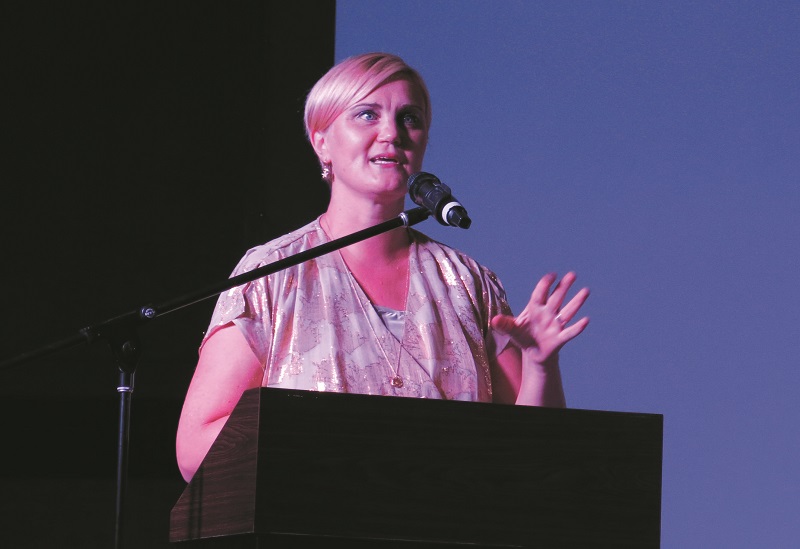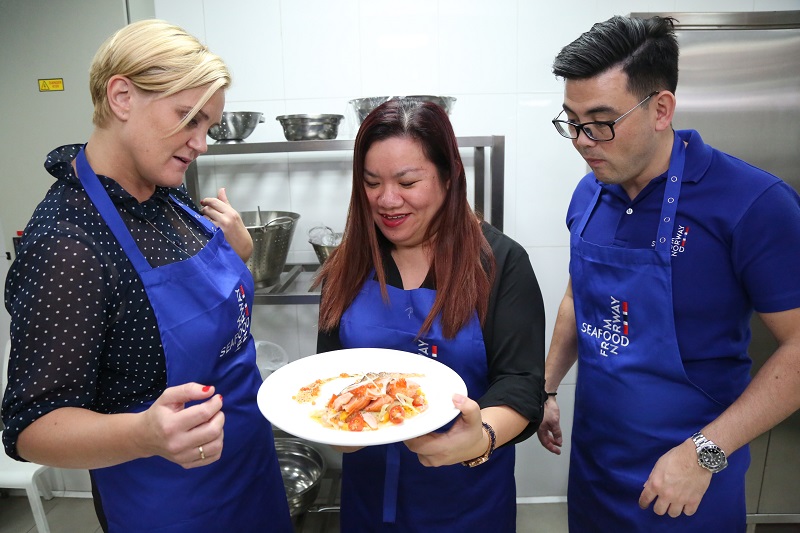
(Photography by SooPhye)
Just over the Christmas and New Year holidays, a Norwegian family would have been visiting some of Malaysia’s best sights, enjoying time out in Cameron Highlands, perhaps with a relaxing sojourn in Penang thrown in.
The Ambassador of Norway to Malaysia, Gunn Jorid Roset, 43, no doubt relished playing tourist – not to mention spending quality time with her husband, their three young children and parents, who are visiting – in her new ‘home’ for the next four years. After all, she has hit the ground running since assuming office last August.
When we met at the Royal Norwegian Embassy recently, Roset seems well settled into her position. Whilst this is her first ambassadorial role, her years in the foreign service, including being former director, East Asia and Oceania, of Norway’s Ministry of Foreign Affairs, and her expertise in Asia and Asean affairs cultivated over the past decade would have had a bearing on her appointment. Her knowledge of the economic and socio-political developments in the region certainly showed during our conversation.
In true Nordic fashion, Roset maintains her cool as she embraces her new position. “In this role, I have to be more of the ‘face of Norway’, to deliver its voice more directly. It’s different from my previous roles, where I was one of the shadows in the background. This is a different challenge, a wider one, but I’m proud and humbled to be given this opportunity,” she says.
Measured and poised with the trained air of a diplomat, though there is a hint of that famed Scandinavian reticence, the ambassador nevertheless has a candour that is refreshingly personable, which perhaps, has something to do with her small-town upbringing.
In this role, I have to be more of the ‘face of Norway’, to deliver its voice more directly. It’s different from my previous roles, where I was one of the shadows in the background
Roset was born in a fjord village of only 1, 500 inhabitants, a picturesque farming area nestled between two cities. The nearest town on the map is Molde, which was where some villagers — including her father — would commute daily to work, predominantly in the hydropower and aluminium plants of local industries. “A fun fact is that Molde has a football team and its manager is Ole Gunnar Solskjær, who played for Manchester United [from 1996 to 2007],” she quips.
A natural liking for social and political science subjects in school was an early indication of her future career in civil service, albeit with some detours along the path. There was the year-long German language and literature course she took in university, influenced by the end of the Cold War and the fall of the Berlin Wall in 1989. Revealing a curiosity for other cultures even then, she remembers the reunification of Germany as an exciting time in Europe and credits her deviation to a season of “rebellious” exploration on her part. “I think I also wanted to prove myself a bit because I struggled with the German language in high school,” she says with a smile.
She became interested in developing countries around the world while doing political science – first at the Norwegian University of Science and Technology, and later at Oslo University – and had initially wanted to work with development assistance in an NGO. But a part-time job opening at the foreign ministry changed her plan, and eventually led to a full-time position in the humanitarian affairs section.
From there, Roset began carving out a niche in Asian affairs, as her fascination switched from Europe to this fast-developing region. “I was intrigued by the energy and scale of the upcoming countries, Malaysia included, and how they positioned themselves in different ways during the Cold War era and after it … and also how big-world policies and politics played out in Asia,” she says.
For more than a decade, she traversed South Asia, East Asia, Afghanistan and Oceania, with work taking her to Thailand, Cambodia and Myanmar (when it was still under military rule), as well as Indonesia and Timor-Leste during the Timorese crisis.
Among what Roset regards as her career’s greatest learning experiences is the part she played in helping restore political relations between Norway and China in 2016, years after the rift that erupted when the 2010 Nobel Peace Prize was awarded to imprisoned political activist Liu Xiaobo. “It was the most challenging task I had worked on. China and Norway both agreed it was better to have a dialogue, and we managed to agree on a solution to the issue by working closely with our Chinese counterparts,” she says, reflecting on the incident.
Another accomplishment that has a direct impact on her current role would be steering Norway towards becoming the first European dialogue partner of Asean (and 11th foreign member of the organisation), also in 2016. Norway’s appointment as partner speaks of its strong position in terms of relations with Southeast Asia, compared to some of its Scandinavian neighbours.
As Roset wades into her four-year tenure of overseeing Norwegian affairs in Malaysia (and Brunei), she is cognisant of the advantages that come with an established platform, and of the responsibility of pushing forward diplomatic and economic relations that have persisted for the last 49 years.
With a reported RM19 billion invested in Malaysia by Norway as at 2017, led by the Government Pension Fund Global (also known as “The Oil Fund”), which makes the country the ninth-largest investor here, the starting point and end goal for the ambassador would be to support Norwegian interests. The 50 or so Norwegian companies with presence in Malaysia will be the priority. In fact, one of the first major events she graced was the Malaysia Norway Business Council’s annual seafood gala dinner last October. “Key on the checklist is to ensure that my network and knowledge are of use to Norwegian businesses here, to be available and knowledgeable about the overall big picture, developments in the country, and make sure I have a relevant network for them,” she says.

To achieve that would require keen observation and analysis of developments, such as the annual presentation of the Malaysian budget. “Overall, I think the big lines indicate strong growth and economic statistics, which make Malaysia a very interesting market for us. The increase in the price of oil also inspires optimism, particularly for Norwegian companies working in that segment here,” she observes.
It is no surprise that oil and gas remains the predominant and biggest industry for Norwegian businesses in Malaysia, led by Aker Solutions. This is followed by shipping, with maritime group Wilhelmsen overseeing up to 10, 000 sailors coming in and out of its regional hub in Kuala Lumpur, and telecommunications, through Telenor Group’s DiGi. But Roset hopes to help diversify Norway’s economic interests, and will be paying close attention to the sectors that Malaysia prioritises, along with its movements in digitising the economy.
“We also want to look more into medium-sized and small enterprises, in line with Malaysia’s strong focus on that segment. Renewable energy is another area we see potential for growth here. Yes, our core business is oil and gas, but if you look at our government-owned Statoil, it has a clear vision to be a company that focuses on green technology in the future, having invested a lot in companies doing that. Scatec Solar is already setting up huge solar plants here by joining forces with a local consortium,” she says.
On the retail side, seafood imports from Norway is another growing industry, and she believes there is more room for expansion. As at last October, the total value of Norwegian exports to Malaysia was about NOK1.6 billion (RM853 million). Seafood accounts for a large portion of the figure, along with minerals and oil and gas equipment. Roset estimates that close to 3, 000 tonnes of salmon were brought into the country last year, adding that she hopes to see an increase in demand for other types of fish, including trout, redfish and mackerel.
“You have a fantastic food culture here, and a love for seafood, so there is big potential. We see a growing market and aim to create more awareness and opportunities for Norwegian fish to be incorporated into Malaysian cuisine.”

Also on her checklist is seeking out opportunities to increase political dialogue with Malaysia, on joint economic scopes and multi-lateral issues. She explains: “Malaysia is a very strong voice in the United Nations on moderation and combating extremism and terrorism, and is well-regarded for its stance as a moderate Muslim country. That’s something we share views on, and hopefully [those will be] further basis for strengthening our ties as well.”
Roset is aware of being in a position of empowerment, given her role. The mother of an 11-year-old girl and nine-year-old twin boys, she aims to strengthen the network of women in corporate and public service.
“With the merit culture of Norwegian companies and our history of bringing women onto boards and into top positions, it really gives one the strength to launch into a role like this, for example. That is a value that can be projected here. We can bring a stronger voice within the Malaysian business sector, for the women in Corporate Malaysia to maybe meet their Norwegian counterparts, and to be supportive of the Malaysian government’s ambitions to increase female participation in key sectors,” she shares.
On a more personal level, the ambassador is candid that while she has never encountered any form of gender discrimination and is confident of being assigned tasks based purely on merit, she acknowledges women still have some way to go in pursuit of career and leadership roles.
“It can be challenging. But it is important to encourage younger colleagues that it is possible. As for male colleagues — thankfully, I have very supportive younger male colleagues — it is about starting and keeping a culture that normalises it for them... that women can be leaders in their field, and that includes younger women with families, not only the ones past having children; that it’s possible to combine career and raising a family. I think the best way to encourage this to lead by example, to be visible. I feel my role is also to be accessible if I’m ever approached by others, Malaysian or otherwise, to keep the momentum going.”
On her posting here, Roset says she has spent her time predominantly in Kuala Lumpur so far, meeting with ministry heads and company leaders. But a recent trip to Kuching confirmed what she feels is the best way to approach her tenure. “To be an ambassador in Malaysia, it’s really important to get out to the different states. They are all very different and there is a strong identity in the culture of the people in each state, as well as a unique governance structure. It’s important for me to know the country and understand it.”
Luckily, this is a challenge the self-confessed country girl relishes. Her office may offer an exciting view of the KL cityscape, but Roset says, “It’s also nice to sometimes get out of big-city life. I feel at home in smaller places.”
She insists there are more similarities between Norwegians and Malaysians than people realise, though those who have read about Norway’s recent ranking as the “world’s happiest country”, not to mention the 2014 report that all Norwegians have become millionaires owing to the success of its sovereign fund , may find that statement puzzling.
“Well, if you go to Norway in the winter, and you see us shivering in the cold, I think happy is not the first word that comes to your mind,” Roset jests. But she acknowledges that education and healthcare are free, and Norwegians have ownership of their homes and enjoy an excellent welfare system. “In that sense, the security makes people happier. Still, it’s not yet fool-proof. There are issues to be solved and people do fall through the safety net.” she says.
Though often delivered deadpan, the banter we share during the interview underlines her point that Malaysia and Norway have a lot in common. “Historically, we’ve had an embassy in Kuala Lumpur since the early 1980s. And, of course, over the years we’ve had many Norwegians coming here to work, especially in oil and gas, building strong ties between the people of our two nations in the process. But more than that, I think Norwegians and Malaysians are quite compatible socially, in the sense that we are quite informal and easy-going. It’s been easy talking to people, and even with our children, people have been so helpful. Surprisingly, it has not been that hard to adapt and connect.”
But one difference Roset readily accepts, for now at least, is Malaysia’s love of durian. “I must admit it hasn’t become a favourite so far. But I’m still trying,” she says, smiling diplomatically.
This cover story first appeared in the Jan 15, 2018 issue of The Edge Malaysia. Save by subscribing to us for your print and/or digital copy.


